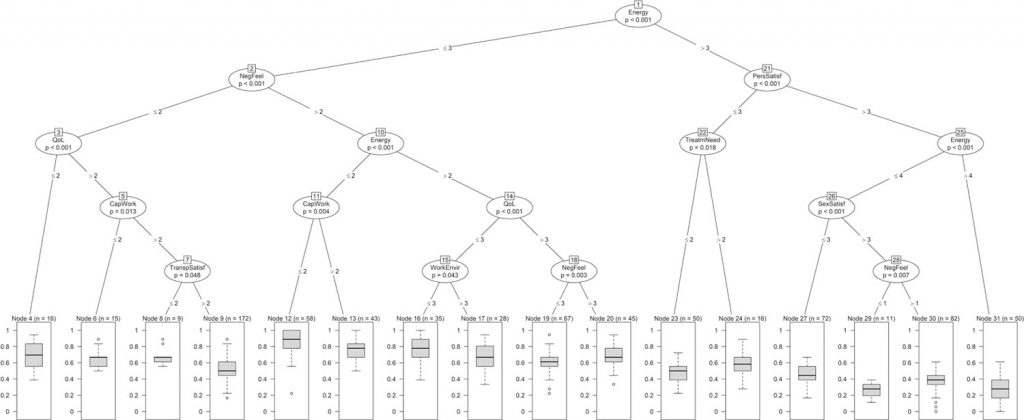Arq. Bras. Cardiol. 2022; 119(2): 307-316
Women Physicians: Burnout during the COVID-19 Pandemic in Brazil
This Original Article is referred by the Short Editorial "Much More Than Just Women: Wonder Women".
Abstract
Background
COVID-19 has placed a tremendous burden on physicians worldwide, especially women physicians, affected by increased workload and loss of quality of life.
Objective
To assess the effects of the COVID-19 pandemic on the quality of life, burnout and spirituality of Brazilian women physicians directly or indirectly providing care to COVID-19 patients.
Methods
Prospective, observational study performed from July 28 to September 27, 2020, in Brazil, with women physicians from 47 specialities, the most frequent being cardiology (22.8%), with no age restriction. They voluntarily answered an online survey with questions on demographic and socioeconomic characteristics, quality of life (WHOQOL-brief), spirituality (WHOQOL-SRPB), and statements from the Oldenburg Burnout Inventory. Statistical analysis used the R software, beta regression, classification trees, and polychoric correlation matrix, with a 5% of significance level.
Results
Of the 769 respondents, 61.6% reported signs of burnout. About 64% reported wage loss of up to 50% during the pandemic. Some reported lack of energy for daily tasks, frequent negative feelings, dissatisfaction with capability for work, and caring for others not adding meaning to their lives. Negative feelings correlated negatively with satisfaction with sexual life and personal relations, and energy for daily tasks. The inability to remain optimistic in times of uncertainty correlated positively with feeling unsafe daily and not acknowledging that caring for others brings meaning to life.
Conclusion
This study showed a high frequency of burnout among Brazilian women physicians who answered the survey during the COVID-19 pandemic. Nevertheless, they presented with a relatively good quality of life and believed that spirituality comforted and reassured them in hard times.
Keywords: Brazil; Burnout, Psychological; COVID-19; Physicians, Women
1,386

